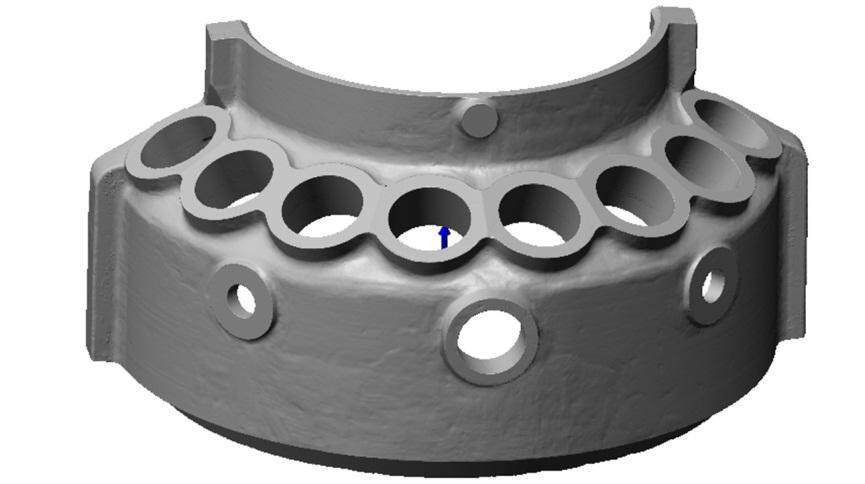E-posta biçimi hatası
emailCannotEmpty
emailDoesExist
pwdLetterLimtTip
inconsistentPwd
pwdLetterLimtTip
inconsistentPwd

Haberler
What Tools are Needed in the Process of Cast Iron Processing?
Cast iron can be classified into; Grey cast iron, white cast iron, malleable cast iron, nodular cast iron, vermicular cast iron, alloy cast iron, etc. Among them, grey cast iron is widely used in the automotive industry, and the automotive industry is a large demand for CNC tools, so processing plants often have a processing demand for grey cast iron.

What tools are used to process ordinary cast iron?
The common cast irons referred to in this paper are grey cast iron, nodular cast iron, and austenitic cast iron. Grey cast iron has good machinability. For example, cemented carbide milling cutters coated with alumina are mostly competent for cutting grey cast iron. Because the content of graphite in nodular cast iron affects its machinability, it is generally possible to use an economical coated alloy milling cutter with integral cemented carbide bars.
Ordinary cast iron processing tools and economic tungsten steel milling cutters can be competent. Secondly, cobalt-containing high-speed steel tools can be used.
What kind of cutting tool is used for difficult-to-machine cast iron?
For the time being, only chilled cast iron is taken as an example. Chilled cast iron is a kind of wear-resistant cast iron, which is characterized by high hardness and high wear resistance by accelerating the cooling of the surface layer of cast iron so that the surface layer can obtain the structure of white cast iron. Chilled cast iron can be divided into ordinary chilled cast iron, nickel-chromium chilled cast iron, high chromium white cast iron, and chromium-vanadium white cast iron.
- Processing characteristics of chilled cast iron
Chilled cast iron has high hardness, great brittleness, and large unit cutting force, and its chips are in the shape of collapse. Because the contact between the tooltip and cutting is too short, the cutting force and cutting heat are concentrated near the cutting edge, which is easy to cause wear and damage to the tool. The processed parts of chilled cast iron are mostly blank, and the machining allowance is large and uneven, which increases the difficulty of cast iron processing. Of course, there are good solutions for cast iron machining tools and cast iron milling cutters at present.
- Selection of machining tools for chilled cast iron
For processing chilled cast iron, it is best to choose cutting tool materials with high hardness, good wear resistance, and certain strength. Generally, the coated fine grain or ultra-fine grain YG cemented carbide or alumina ceramic tools are used.
- Cutting parameters of milling cutter for processing chilled cast iron
Cemented carbide cutting tools; Low-speed large feed. V=9m/min, and the feed rate is generally selected according to the main deflection angle and the back cutting amount. 0.5mm/r for rough machining of cast iron and 0.1~0.4mm/r for finish machining of cast iron.
Ceramic cutting tools; Generally, high-speed milling is selected, rough and semi-finishing cast iron v=50~80m/min and finishing v=80~120m/min.
Cast iron processing tools, such as cutter particles, can be rough, semi-finish, and finish machining. If you don't know what milling cutter is used for cast iron, you should choose YG cemented carbide cutter for processing a cast iron milling cutter.
For more information about benjamin medwin cast iron, mini cast iron skillets, cast iron manufacturer, plz feel free to contact us.

